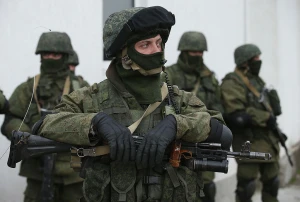
Ukraine's historic victory in Strasbourg
The European Court of Human Rights' judgment in the case against Russia over Crimea, published on June 25, is undoubtedly a historic victory
The Court satisfied most of Ukraine's demands, recognizing not just human rights violations, but a systematic practice of such violations by the aggressor. These violations continued from February 2014 until at least September 2022, when the Court terminated its jurisdiction over Russia.
"The European Court confirmed that Russia violated the right to life in Crimea due to enforced disappearances and the lack of effective investigations. It highlighted the cruel treatment of Ukrainian servicemen, ethnic Ukrainians, and Crimean Tatars, as well as journalists."
The Court also found violations of the right to freedom due to the incommunicado detention of Ukrainian military personnel, ethnic Ukrainians, Crimean Tatars, and journalists. Additionally, it recognized the violation of the right to privacy caused by arbitrary raids and searches in private residences.
The European Court found that freedom of conscience was violated through the persecution and intimidation of religious leaders "who do not profess the Russian Orthodox faith," (including Ukrainian Orthodox priests and imams). Arbitrary raids on places of worship and confiscation of religious property were noted, alongside violations of freedom of speech through the suppression of "non-Russian mass media," including the closure of Ukrainian and Crimean Tatar TV stations.
The court ruled that freedom of assembly was violated by the administrative practice of "banning public assemblies and demonstrations supporting Ukraine or the Crimean Tatar community." This included intimidation and arbitrary detention of demonstration organizers. Additionally, the court identified violations of the right to property due to the expropriation of civilians' and private enterprises' property without compensation. It also found violations of the right to education due to the suppression of the Ukrainian language in schools and the persecution of Ukrainian-speaking children.
"The court determined that the so-called "courts" of the occupiers in Crimea cannot be considered "established by law" under the European Convention, highlighting their lack of legitimacy. It also stated that the right to privacy was violated due to the lack of an effective system for renouncing "Russian citizenship.""
Another thing, and this is extremely important, the European Court ruled that Russia violated the prohibition of discrimination against the Crimean Tatars, thereby significantly correcting the January decision of the UN International Court of Justice, which had a strong impact, especially on the Crimean Tatar community.
Why is there such a fundamental difference between the decisions of Strasbourg and The Hague? It's not about the judges or "bad international law," but about personnel issues and the stability of state structures.
"Since 2014-2015, the team of specialists at the Ministry of Justice has only grown, working in the state interests of Ukraine, rather than focusing on profits for "foreign legal advisers.""
I remember very well the tension when we decided to create a separate division in the Ministry of Justice to handle interstate complaints in 2015.
Congratulations to all involved.
To those trying to discredit Ukraine in this case, I have one thing to say: for you, this is just the beginning.
About the author. Borys Babin, Ukrainian scientist, public and political figure, doctor of legal sciences, professor.
The editors do not always share the opinions expressed by the blog authors.
- News














































